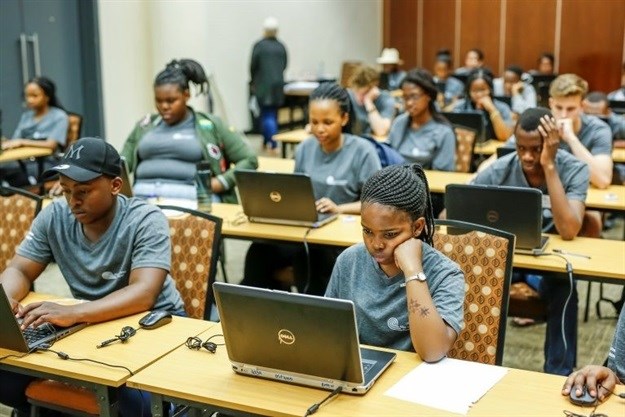
With a focus on three key areas of education, entrepreneurship and job creation, philanthropist Allan Gray and the Allan Gray Orbis group created a value chain of initiatives, which make a sustainable, long-term contribution to Southern Africa by nurturing the emerging entrepreneurial potential.
Building entrepreneurial mindset – how a person thinks, the lens through which they see the world, and how this influences their propensity for entrepreneurial activities and outcomes – requires a holistic approach that encompasses all key ecosystem participants: teachers, students and entrepreneurs.
The Foundation believes that entrepreneurship can be taught, and runs several programmes to develop the skills needed by youth to start their entrepreneurial journey.
However, just as entrepreneurship can be taught, so too can a non-entrepreneurial mindset, explains Gary Schoeniger - author, entrepreneur and founder of the Entrepreneurial Learning Initiative.
For Schoeniger, entrepreneurship is an “opportunity discovery process”, and to cultivate a generation of entrepreneurs, teachers need to be equipped to teach entrepreneurship.
“We’re teaching young people to think like employees instead of entrepreneurs, with a focus on delivery instead of discovery.”
To aid teachers in creating the next generation of entrepreneurs in the classroom, the Jakes Gerwel Fellowship (JWF) was established. The JWF was born out of the Foundation’s realisation that teachers needed to be equipped to cultivate this talent in their classrooms and that there is a need to create high impact, expert teachers.
According to research by the World Economic Forum, schools are generally well-enabled to develop foundational literacies; however, competencies such as creativity, critical thinking and collaboration that help students approach complex challenges as well as character qualities like curiosity, grit, social and cultural awareness that assist pupils navigate their changing environment are much harder to cultivate.
But for Schoeniger, teaching entrepreneurial skills is not complicated – he suggests allowing learners to work in small groups of three of four, and to have them identify problems in their community that they can solve.
“When we use discovery-type learning, students develop creativity, critical thinking, communication, collaboration, resilience and resourcefulness.”
Learning through discovery is at the heart the Foundation’s Entrepreneurship Challenge, a programme which gamifies entrepreneurship and introduces high school learners to entrepreneurial thinking and problem-solving. The Challenge empowers teachers with collateral and content that encourage real solutions to current problems, and runs as a national online competition that is fun and interactive.
Schoeniger believes children need to see examples of entrepreneurs from similar backgrounds, who are relatable role-models. This requires not only investing in learners, but ensuring they are given the lifelong support needed to make them successful entrepreneurs.
Through its Scholarship Programme, the Foundation offers high school scholarships to learners who are in financial need; have a curious, entrepreneurial mindset; and are high academic achievers. To date, 208 Scholars have graduated from the programme.
Fellowship recipients, known as Allan Gray Candidate Fellows, receive funding for university studies as well as access to support and development to cultivate an entrepreneurial mindset. This has resulted in a R1 billion investment in more than 1,400 Fellow Candidates over a decade, and has produced more than 62 new businesses, 820 new jobs and a 0% unemployment rate amongst programme participants.
As a follow-on programme, the Association of Allan Gray Fellows is made up of Fellows who have completed the Fellowship Programme and have either pursued further studies, entered the world of work or started a business. There are currently 442 active Fellows who have created over 7,500 jobs.
Schoeniger adds: “Not everyone should be a business owner, but everyone should be an entrepreneur. Entrepreneurship is identifying and solving problems in a resource strained and ambiguous environment. All humans have the innate desire to be engaged in work that matters, to be able to solve problems, to see their work impacting people around them and to feel they are on a path towards something more prosperous for themselves.”